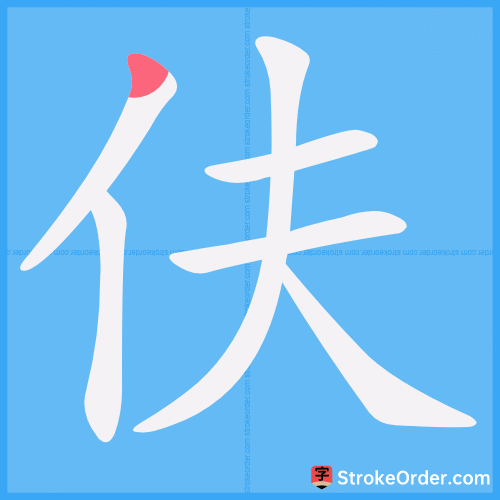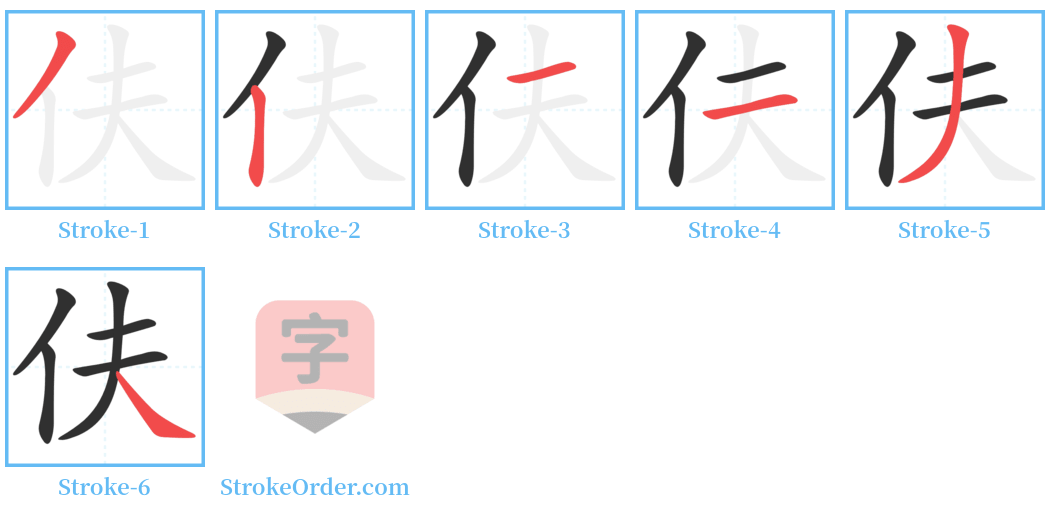伕 Stroke Order
Animated Stroke Order of 伕

Stroke Order Diagrams for 伕

Step-by-Step Handwriting Guide for 伕

Learn to Write Chinese Characters with Video Tutorials
Watch the video of writing the Chinese character "伕", learn the correct stroke order (笔顺) of the character "伕", and master the standard way of writing the character "伕".
Free Printable Handwriting Practice with Stroke Order: 伕
Printable Writing Practice Worksheet of "伕" in Portrait Orientation (Tian Zi Ge)

Printable Writing Practice Worksheet of "伕" in Landscape Orientation (Tian Zi Ge)

Information of 伕
Pinyin
fū
Radical
亻
Strokes
6 strokes
Usage
★★★
Definition
variant of 夫[fu1]
伕 [fū]
1. Same as "夫". Generally refers to laborers.
2. Part of speech: noun. Same as "夫".
3. Part of speech: noun. Same as "夫".
4. Particle: used in classical Chinese as a word that indicates emphasis. Example: "夫颛臾,昔者先王以为东蒙主,且在邦域之中矣。" from "The Analects". Translation: "As for Zhuan Yu, the former kings regarded him as the master of Dongmeng, and he was indeed within the realm."
Example: "夫国君好仁,天下无敌。" from "Mengzi". Translation: "If a ruler loves benevolence, he will have no enemies throughout the world."
5. Particle: used at the end of a sentence in classical Chinese to indicate exclamation or doubt. Example: "子在川上曰:『逝者如斯夫,不舍昼夜。』" from "The Analects". Translation: "The Master said by the river, 'The flow of time is like this, it does not stop day or night.'"
Example: "孔子曰:『吾歌,可夫?』" from "Records of the Grand Historian". Translation: "Confucius said: 'Can I sing?'".